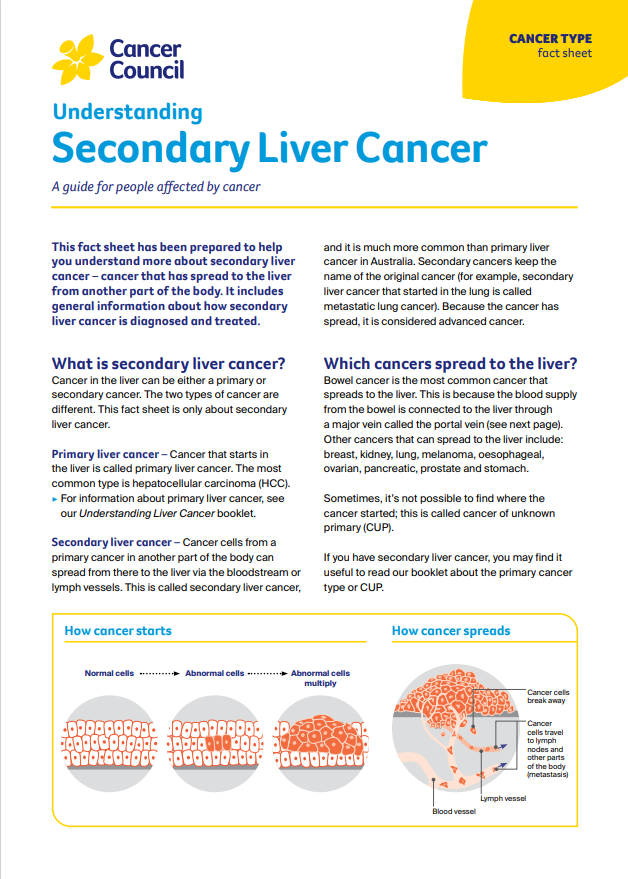- Home
- Secondary liver cancer
- Managing symptoms
- Jaundice
Jaundice
Bilirubin is a yellow pigment formed when red blood cells in the body break down. In secondary liver cancer, bilirubin sometimes builds up in the blood. This can be because the cancer has blocked a bile duct or affected how the liver is working.
The build-up of bilirubin in the blood is known as jaundice. It can cause yellowing of the skin and whites of the eyes. People with jaundice may feel very tired and lose their appetite.
Jaundice can also cause pale faeces, dark urine and itchy skin, which is often worse at night. Try to avoid alcohol, spicy food, hot baths and direct sunlight, which can make the itching worse. Keeping your skin moisturised can provide some relief, or your doctor can prescribe medicine that may help.
Jaundice can sometimes be relieved by inserting a small tube made of plastic or metal (a stent) into the bile duct. Symptoms of jaundice usually go away 2–3 weeks after the stent is placed into the bile duct. However, stenting is not always recommended or possible in advanced cancer.
→ READ MORE: Poor appetite and weight loss
More resources
Prof Desmond Yip, Senior Staff Specialist, Department of Medical Oncology, The Canberra Hospital, ACT (clinical update); A/Prof Siddhartha Baxi, Radiation Oncologist and Medical Director, GenesisCare, Gold Coast, QLD; Prof Katherine Clark, Clinical Director of Palliative Care, NSLHD Supportive and Palliative Care Network, Northern Sydney Cancer Centre, Royal North Shore Hospital, NSW; Anne Dowling, Hepatoma Clinical Nurse Consultant and Liver Transplant Coordinator, Austin Health, VIC; A/Prof Koroush Haghighi, Liver, Pancreas and Upper Gastrointestinal Surgeon, Prince of Wales and St Vincent’s Hospitals, NSW; Karen Hall, 13 11 20 Consultant, Cancer Council SA; Dr Brett Knowles, Hepato-Pancreato-Biliary and General Surgeon, Royal Melbourne Hospital, Peter MacCallum Cancer Centre and St Vincent’s Hospital, VIC; Lina Sharma, Consumer; A/Prof Simone Strasser, Head of Department and Hepatologist, AW Morrow Gastroenterology and Liver Centre, Royal Prince Alfred Hospital and The University of Sydney, NSW; David Thomas, Consumer.
View the Cancer Council NSW editorial policy.
View all publications or call 13 11 20 for free printed copies.

